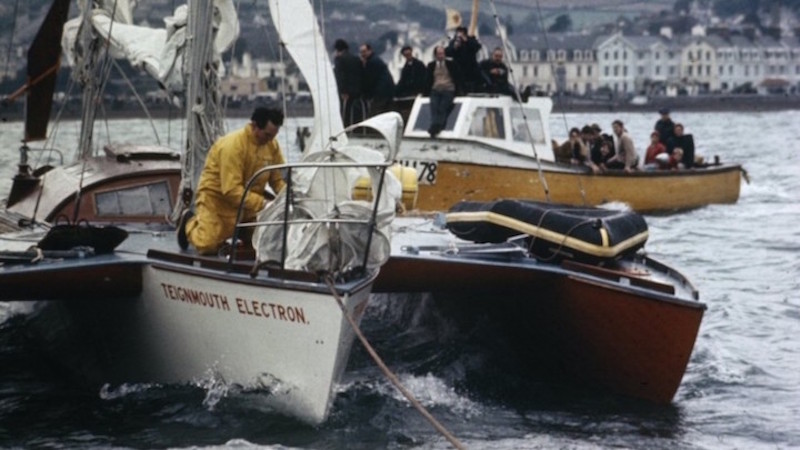“MAX POSS. ERROR” – the shame of Donald Crowhurst
- 4 October 2016
- Posted by: Michael H Hallett
- Category: Shame ,

In this blog I have sometimes used real-life examples as case studies of unconscious shame, from public figures such as Amy Winehouse and Michael Jackson, to others such as Vincent Tabak and Private Lynndie England who would have remained unknown except for their shame-based misdeeds. Curiously, Donald Crowhurst, the subject of this post, fits somewhere between the two. At the moment of his infamy his name was splattered across the front pages of the newspapers. Yet today hardly anyone remembers him. Such is the self-effacing nature of shame.
Donald Crowhurst was a participant in the ill fated 1968-69 Sunday Times Golden Globe round-the-world, non-stop sailing race. Much has been written about this race and its aftermath, though not—as far as I am aware—from the viewpoint of unconscious shame.
Crowhurst’s shame was already entrenched by the age of eight, when his boarding school reported on an “excellent first term”. The young Crowhurst’s assessment varied: “Very bad… disgraceful… failed”.
The Golden Globe race
Years later, expelled from the armed forces for reasons never satisfactorily explained and with his naval electronics business on the rocks, Crowhurst entered the Golden Globe race to revive his fortunes. It soon became apparent that his hastily built and seriously under-prepared trimaran, the Teignmouth Electron, would not survive the rigours of the Southern Ocean.
With the resourcefulness of a cornered animal, Crowhurst decided to fake his round-the-world passage. He maintained radio silence while hiding in the remote South Atlantic and monitored the positions of the other yachts. Crowhurst’s plan was to come home in 4th place, which would earn him acclaim while (he hoped) avoiding inspection of his meticulously faked logbooks. As other competitors dropped out, Crowhurst by default moved into a position to win one of the race’s two prizes.
The pressure was too much. Crowhurst abandoned both the race and his lucidity. The final pages of his logbooks are filled with a muddled mix of pseudo-spiritual revelations and Einsteinian mathematics. Crushed by the weight of his shame, Crowhurst concluded that his position was untenable. “MAX POSS(ible) ERROR,” he scrawled. A few days later he stepped off the back of his boat into the Sargasso Sea and disappeared. The unmanned Teignmouth Electron was found by a passing Royal Mail vessel. Only when its captain inspected Crowhurst’s logbooks did his remarkable story begin to emerge.
The Misfit
The general diagnosis of Donald Crowhurst was that he suffered from paranoid grandiosity. Yet the shame that gave rise to that paranoia was already embedded in his psyche by the age of eight. Among the incoherent fragments in Crowhurst’s writings one passage stands out for its clarity, a poem written when a land-based bird alighted on his ocean-going yacht:
Save some pity for the Misfit, fighting on with bursting heart Not a trace of common sense, his is no common flight. Save, save him some pity. But save the greater part For him that sees no glimmer of the Misfit’s guiding light
Crowhurst’s capitalisation of the word ‘misfit’ shows that he strongly identified with the romantic idea of the outsider—the person who, through no fault of their own, never quite fits into accepted society. The sense of being a misfit is a clear marker of unconscious shame. They have their own compass that leads them outside the safety flags of mainstream society. This can result in the creative brilliance epitomised by Amy Winehouse but it can—often simultaneously—lead to the grotesque Neverland that Michael Jackson haunted in his final years.
The real shame about Donald Crowhurst is that he proved that he was a highly capable long distance sailor. Experts assessed his faked navigation log as a brilliant, nearly flawless, piece of mathematics. Yet Crowhurst’s own self-image meant that he saw only shameful failure.
